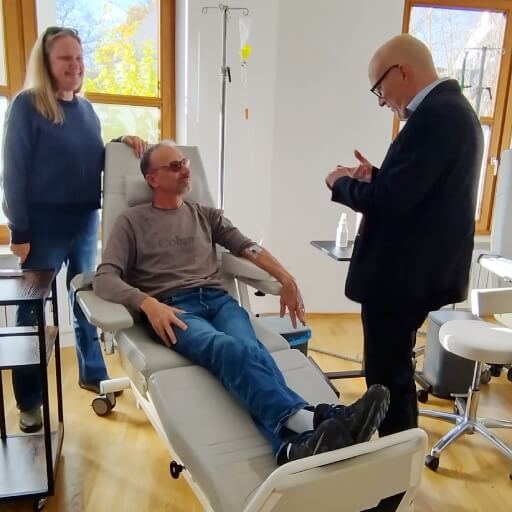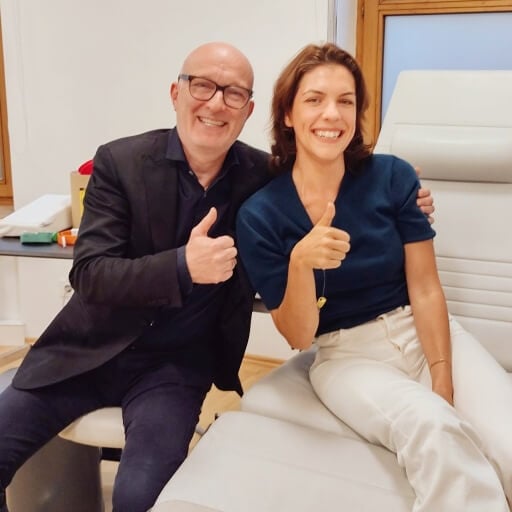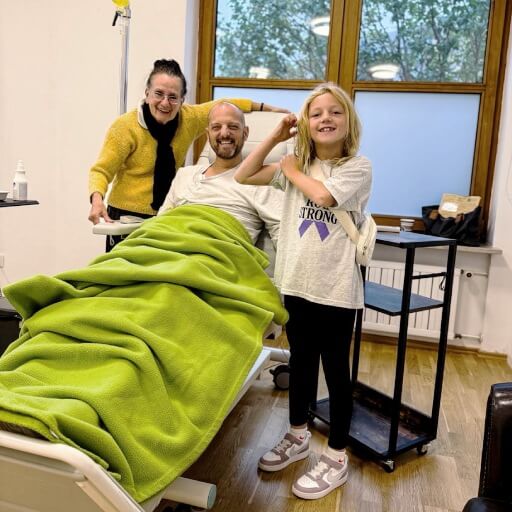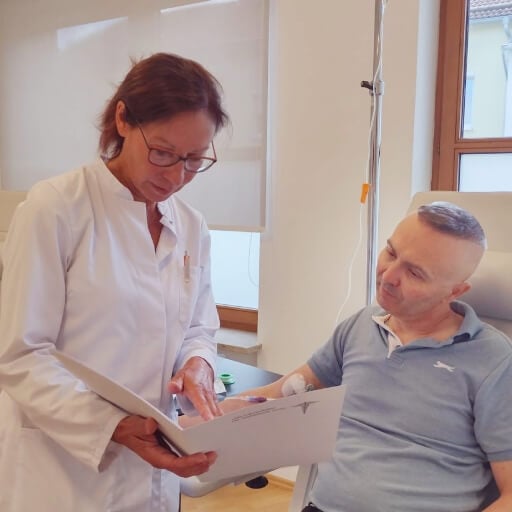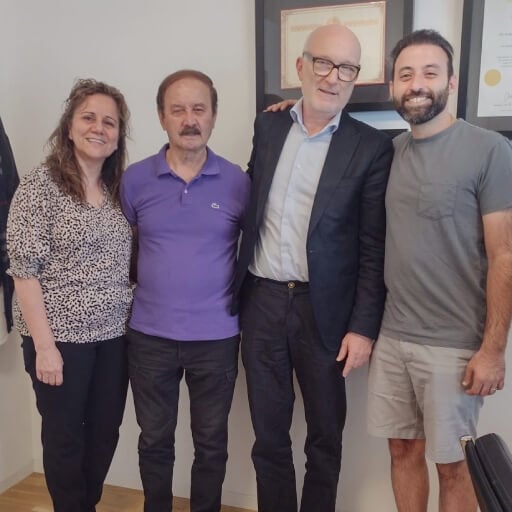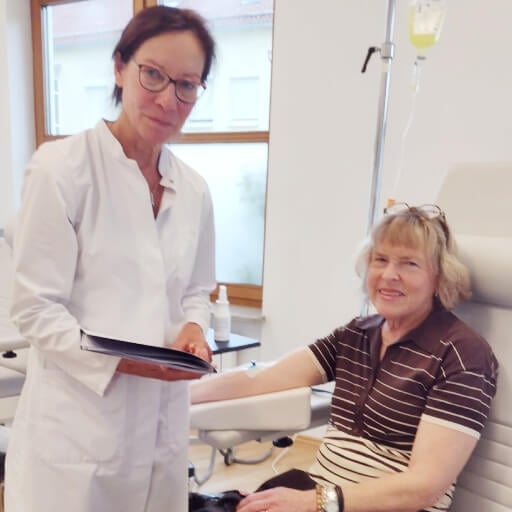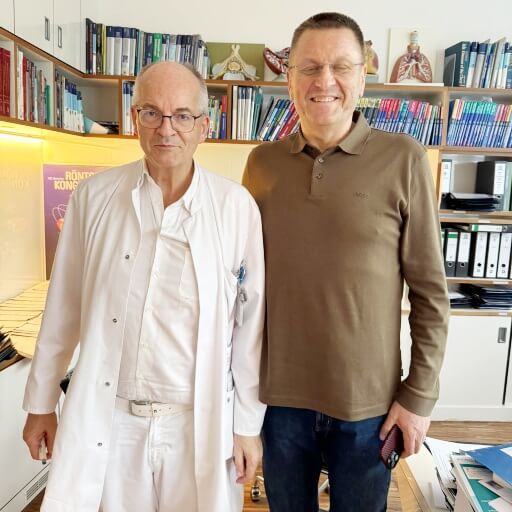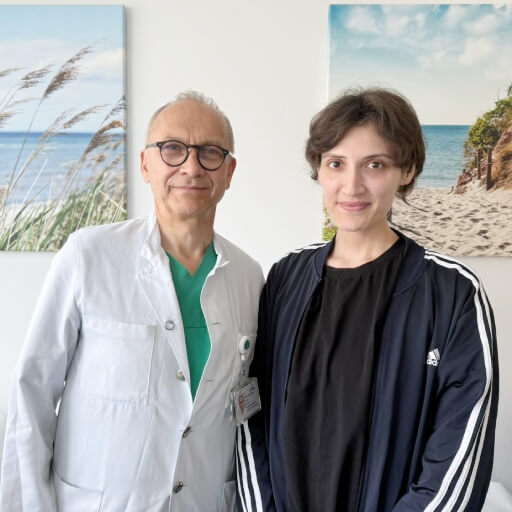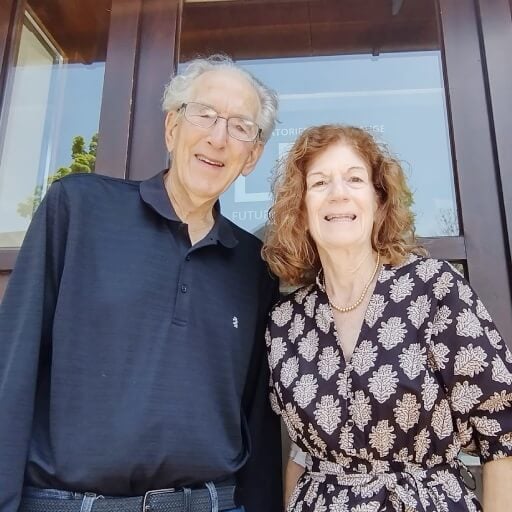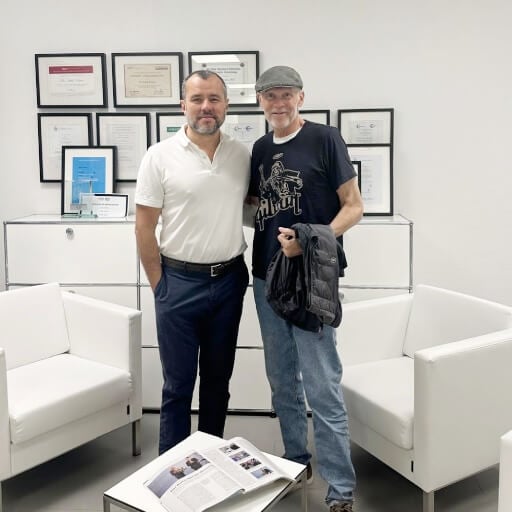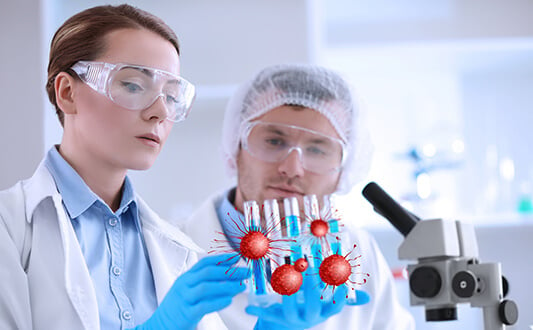Duodenal cancer is an aggressive malignancy that requires from healthcare professionals expertise beyond standard approaches. According to the statistics, the survival is falling to just 11-19% in advanced cases from 80% in early stages. Traditional duodenum cancer treatment such as Whipple procedure is the approved basis but newer therapies such as TACE, dendritic cell immunotherapy and minimally invasive ablation techniques are adding odds. Patients can obtain individualized care plans when they contact specialists who offer these advanced treatments. Don't limit yourself to standard protocols – specialized options may increase longevity and quality of life.
So what is Duodenal Cancer? Understanding This Rare Condition
According to the international registries, duodenal cancer represents a serious malignancy of the first part of your small intestine, which makes up less than 1% of all cancers [1]. Despite being that rare, duodenum cancer makes up over 50% of small bowel adenocarcinomas [2].
All duodenal cancers are divided into such types:
- Adenocarcinoma (the most widespread DC type)
- Carcinoid tumors
- Lymphoma
- Sarcoma (GI stromal tumors)
Often early stage cancer in duodenum has no symptoms, making early detection difficult. As the disease progresses, patients may complain of symptoms of duodenal cancer: abdominal pain, visible blood in the stool, unexplained weight loss, etc. Five-year survival rates (SR) vary significantly by stage: SR exceed 80% for early-stage disease and drop to 11-19% for advanced staging. This highlights the importance of timely diagnosis and treatment start.
Standard Treatments for Duodenal Cancer Are Surgery, Chemotherapy, and Radiation Therapy
Duodenal cancer treatment is still primarily based on surgery, with two primary surgical options available:
- The Whipple procedure – pancreaticoduodenectomy. Removes the cancer in the duodenum, a portion of the pancreas, gallbladder as well as bile duct. Usually used for tumors within the second part of the duodenum.
- Segmental resection. Eliminates just the affected part of the duodenum and it is ideal when clear margins can be achieved.
When negative margins and adequate lymph node evaluation are achieved, both procedures have comparable survival rates.
Despite the lack of definitive survival benefits from post-surgery chemotherapy, there are some high risk patients who may benefit from it, especially those with lymph node involvement. The use of radiation therapy is much less common but can enhance local control when combined with chemotherapy, particularly for node-positive disease.
TACE – Precision Therapy for Liver Metastasіs of Duodenal Cancer
In adenocarcinoma in duodenum that spreads to the liver, patients need targeted treatment that maximizes effectiveness and minimizes systemic side effects. Transarterial chemoembolization (TACE) is administered exactly in such cases.
Liver tumors receive 90% of their blood supply from the hepatic artery; healthy liver tissue primarily relies on portal vein circulation. This particular vascular difference enables targeted therapy delivery.
During the procedure, specialists do the following:
- Get access to the vascular system with a tiny incision in the groin region
- Easily navigate imaging-guided catheters to tumor feeding vessels
- Directly to the tumor location, deliver personalised anti-cancer medicines and blocking agents
The localized approach has several advantages:
- Medication concentrations reach levels that are impossible with conventional delivery methods
- Blood vessel occlusion creates a dual effect of starving tumor cells while trapping medication at the target site
- Healthy tissue throughout the body avoids exposure to potent treatments
TACE offers many key benefits for duodenal cancer patients [3]:
- Outpatient treatment that requires minimal hospitalization
- Significantly milder side effects – generally restricted to localized discomfort and short term fatigue
- Patients with limited alternatives because of age or health status are candidates
- If necessary for continuous disease management, can be performed repeatedly
- Compatibility with other therapy methods in comprehensive cancer care
TACE for gastrointestinal cancers, including duodenal cancer, is currently being evaluated for its ability to control disease progression and improve daily living quality – even after other treatments have failed.
Learn what new developments in TACE treatment are in this exclusive interview with Professor Atilla Kovács, an internationally renowned pioneer in interventional oncology. Prof. Kovács describes how this targeted approach is changing outcomes for patients with metastatic cancers based on his extensive medical experience.
Prof. Kovács: Why TACE Doubled Cancer Survival – What Patients Need to Know
Dendritic Cell Therapy Against Duodenal Cancer
Dendritic cell immunotherapy is an alternative that works differently from conventional therapies. This innovative treatment was recognized with a Nobel Prize for its discovery is a hope for patients who have exhausted standard therapeutic options.
Unlike chemotherapy which attacks cells randomly, dendritic cell therapy triggers the body's own natural defenses against cancer. Dendritic cells – key immune system components involved in antigen recognition – are isolated from a small amount of the patient's blood (150-200ml). These cells are "educated" to recognize the patient's duodenal cancer cells.
In duodenal cancer, DC vaccination gives such advantages:
- Treatment is precisely tailored to the patient's tumor
- Side effect profile is remarkably mild
- Effective in cases with nodal involvement
- Suitable for elderly patients and debilitated people
- Can be combined with other treatments, can be administered right after surgery
- Outpatient procedure
- Recurrence prevention – anticancer immunity after a single injection
In clinical studies for gastrointestinal cancers, including duodenal adenocarcinoma, response rates ranged from 60-95%. This therapy may be of particular benefit in the context of integrated care in patients with stage III and IV duodenal cancer for whom traditional therapies alone are not curative.
German immunologist and DC therapy pioneer Professor Frank Gansauge talks about dendritic cells in this interview. Prof. Gansauge explains how this personalized immune-activating treatment for duodenal cancer improves outcomes for patients with limited therapeutic options.
"Every Patient Deserves an Individual Approach": Interview with Renowned German Immunologist Prof. Gansauge
Minimally Invasive Therapies for Duodenal Cancer
If surgical resection isn't possible or desirable for duodenal cancer, several advanced non-surgical interventions may be useful alternatives. They provide tumor control without the physiological stress of major operations in patients with localized disease or limited metastases.
Using Heat to Destroy Duodenal Tumors: Understanding RFA & Microwave Ablation
For carefully selected duodenal tumors, radiofrequency ablation (RFA) provides a powerful tissue-sparing approach [4]. This technique employs a specialized probe placed directly into the tumor using imaging guidance. Device emits alternating current that rapidly heats surrounding tissue to 60-100°C – this causes precise cellular destruction.
Microwave ablation technology is a newer one. It offers several advantages specifically relevant for duodenal cancer treatment [5]. By generating electromagnetic waves instead of electrical current, it achieves:
- Faster heating
- Larger treatment zones
- Less susceptibility to the "heat sink" effect near blood vessels
- More uniform ablation
- The capability to address multiple lesions in a single session
Most patients undergo these procedures with conscious sedation rather than general anesthesia, typically returning home within 24 hours. Treatment sessions usually last 30-90 minutes, depending on tumor characteristics, with complete recovery within days rather than weeks.
A prospective multicentre trial on survival after Microwave Ablation VErsus Resection for Resectable Colorectal liver metastases (MAVERRIC)
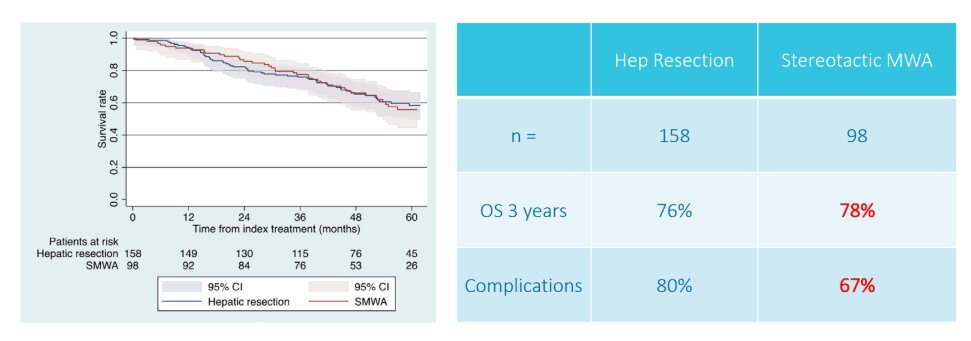
Freezing Duodenal Cancer Away: The Benefits of Cryoablation
The cryoablation approach is recommended for duodenal tumors located near critical structures where heat-based methods have risks. This technology applies pressurized argon gas via a needle applicator to tissue and cools it to below-75 degrees Celsius.
The procedure's distinctive benefits for duodenal cancer include:
- Superior visualization through easy identification of the ice ball with CT or ultrasound
- The natural anesthetic effect of cold reduces post-procedure pain
- Preservation of collagen architecture in treated tissues
- Potential immunological advantages through tumor antigen release
- Precise treatment margins with predictable tissue effect
Such minimally invasive techniques are particularly valuable in patients with localized duodenal tumors who are unable to tolerate major surgery due to age or other comorbidities.
| Characteristic | Standard Treatment | Innovative Methods |
|---|---|---|
| 2-Year Duodenal Cancer Survival Rate | ~25% for advanced cancer | ~60% for advanced cancer |
| Response Rate | Less than 10% | 45-65% |
| Treatment Duration | Several cycles over months | Up to 4 sessions |
| Common Side Effects | Significant and generalized (nausea, fatigue, hair loss, weakened immune system, skin inflammation) | Generally minimal (mainly limited to temporary discomfort at the treatment site) |
| Cost in Germany | €80,000 - €150,000 full course | €25,000 - €60,000 full course |
| Cost in Great Britain | €90,000 - €165,000 full course | €70,000 - €120,000 full course |
| Cost in the USA | €100,000 - €180,000 full course | €100,000 - €150,000 full course |
Booking Health data. Costs may vary based on case complexity, hospital stay duration, required follow-up care, and additional expenses such as diagnostics, travel, and accommodation.
Patient Story: Modern Duodenal Cancer Treatment For 40% Tumor Shrinkage
At age 58, Michael was diagnosed with cancer of the small intestine after being examined for abdominal pain and weight loss. Unfortunately, oncology spread to nearby lymph nodes. The prognosis was months rather than years and his oncologist recommended only palliative chemotherapy.
Not accepting this outcome, Michael researched other options and booked a second opinion abroad through Booking Health. A week later he was consulting with doctors who treat duodenal cancer at one of Germany's top oncology centers.
"The comprehensive approach made all the difference," Michael recalls. "Instead of just one standard protocol, they evaluated my case individually and suggested combining treatments."
Michael underwent a specialized dendritic cell therapy where his own immune cells were harvested, "trained" to recognize his specific cancer cells, and reintroduced to his body. The outpatient procedure required just two visits with minimal side effects – mainly mild fatigue and a slight fever for a day.
Six months later, Michael's follow-up scans revealed more than 40% tumor shrinkage and no new metastases. Two years after diagnosis he remains active. "Getting that second opinion gave me back control and hope. The innovative approach not only extended my life but preserved its quality."
Modern Cancer Treatment: Patient Journeys with Booking Health
How Innovative Treatments Can Change The Duodenal Cancer Prognosis
A stage 4 duodenal cancer diagnosis usually means doctors say "there are no options." It needn't be the end of your journey.
As one can note, today's rapidly advancing medical field offers promising alternatives. Innovative therapies such as dendritic cell immunotherapy activate your body's natural defenses against cancer cells, while TACE delivers treatment directly to liver invasion sites with minimal systemic impact. For those unsuitable for major surgery, techniques like radiofrequency ablation and cryoablation provide effective tumor control with remarkably shorter recovery periods.
It is important to mention that these cutting-edge approaches require fewer hospital visits – often just short stays or one-time procedures – with significantly milder side effects than conventional treatments. Personalized care plans combining several innovative methods are now priorities at leading hospitals for duodenal cancer treatment.
Though not ultimate cures, these life-saving tools can fight metastases, stop disease progression, and boost immunity. Keep hope alive – even in the most difficult cases medical innovation continues to open up new possibilities.
Your Trusted Partner: Every Step of the Way With Booking Health
Finding the best treatment strategy for your clinical situation is a challenging task. Being already exhausted from multiple treatment sessions, having consulted numerous specialists, and having tried various therapeutic interventions, you may be lost in all the information given by the doctors. In such a situation, it is easy to choose a first-hand option or to follow standardized therapeutic protocols with a long list of adverse effects instead of selecting highly specialized innovative treatment options.
To make an informed choice and get a personalized cancer management plan, which will be tailored to your specific clinical situation, consult medical experts at Booking Health. Being at the forefront of offering the latest medical innovations for 12 years, Booking Health possesses solid expertise in creating complex cancer management programs in each case. As a reputable company, Booking Health offers personalized stage 4 duodenal cancer treatment plans with direct clinic booking and full support at every stage, from organizational processes to assistance during treatment. We provide:
- Assessment and analysis of medical reports
- Development of the medical care program
- Selection of a suitable treatment location
- Preparation of medical documents and forwarding to a suitable clinic
- Preparatory consultations with clinicians for the development of medical care programs
- Expert advice during the hospital stay
- Follow-up care after the patient returns to their native country after completing the medical care program
- Taking care of formalities as part of the preparation for the medical care program
- Coordination and organization of the patient's stay in a foreign country
- Assistance with visas and tickets
- A personal coordinator and interpreter with 24/7 support
- Transparent budgeting with no hidden costs
Health is an invaluable aspect of our lives. Delegating management of something so fragile yet precious should be done only to experts with proven experience and a reputation. Booking Health is a trustworthy partner who assists you in pursuing stronger health and a better quality of life. Contact our medical consultant to learn more about the possibilities of personalized treatment with innovative methods for metastatic duodenal cancer with leading specialists in this field.
FAQ About Duodenal Cancer
Send request for treatmentAs it comes from the clinical practice – there is no one single best treatment for all cancer cases. The scheme depends on stage and tumor location. At early stages doctors often choose surgery. Advanced cases respond to combined approaches with TACE, dendritic cell therapy, and ablation, etc.
Yes, surgery remains the main curative treatment. Pancreaticoduodenectomy (Whipple procedure) is used for tumors near the pancreatic duct, and segmental resection for tumors in other duodenal regions. Both procedures show similar survival rates when complete tumor removal is achieved.
Modest effectiveness of chemotherapy for duodenal cancer is suggested. Chemotherapy protocols are designed for colon cancer; evidence for duodenal cancer is limited. It's can be used after surgery – for high-risk cases or advanced disease.
5 year survival rate is suggested to be te following: up to 80% for 1st stage, 48-65% for regional spread, 11-19% for metastatic cancer. Recent statistics show improved outcomes as more patients access specialized care centers.
Endoscopy is the first intervention – it allows direct visualization. Biopsy confirms the diagnosis after that. Staging requires CT, sometimes MRI or endoscopic ultrasound – to assess signs of local spread. PET may be additionally administered to detect distant metastases.
Side effects may vary by treatment type. Surgery may cause digestive issues, radiation can irritate the stomach lining and cause nausea. Standard chemotherapy has systemic effects of fatigue and decreased immunity. Newer therapies are tolerated better, which is essential in cancer care.
Yes, doctors commonly use Whipple procedure for duodenal cancer. They remove the duodenum with ampullary region, part of the pancreas, gallbladder, and bile duct. Specialized centers report mortality rates below 5%, which is fairly a good result for such complex intervention.
The treatment market has expanded significantly with innovative options for duodenal cancer. Dendritic cell immunotherapy, transarterial chemoembolization of liver metastases, and minimally invasive ablation are the promising ones. Such approaches may prove useful where conventional therapies fail.
Yes, recurrence is possible. The risk is expected to be higher in lymph node involvement or presence of a polyp with genetic mutations. Follow-up with imaging and endoscopy is a thing to undergo regularly.
Treatment plan depends on anamnesis (for hereditary conditions), cancer stage, patient health, etc. Personalized plans are created by surgeons, oncologists and radiology specialists. Intestinal blockage or obstruction may require a stent or surgical bypass. Sometimes therapy seeks to heal what initially looked like an ulcer but was early stage cancer.
Symptoms of duodenal cancer often include abdominal pain, nausea, vomiting, unexplained weight loss, jaundice, and blood in the stool. These signs typically appear in advanced stages, as early-stage disease is often asymptomatic.
In Germany, standard duodenal cancer treatment costs €80,000-€150,000. In turn, innovative therapies (e.g., TACE, dendritic cell immunotherapy, and ablation techniques) range between €25,000-€60,000. In Great Britain, costs reach €90,000-€165,000 and €70,000-€120,000, respectively. In the United States, prices average €100,000-€180,000 for standard care and €100,000-€150,000 for innovative methods. To compare, in Australia, advanced duodenal cancer treatments are often limited in availability. Moreover, they can be three to four times more expensive than in Europe.
For duodenal cancer, the 2-year survival rate averages around 25% with standard treatments. However, it can reach up to 60% with advanced therapies like TACE, dendritic cell immunotherapy, and ablation techniques.
The response rate for duodenal cancer is below 10% with standard approaches such as chemotherapy alone. On the other hand, innovative methods can achieve 45-65%.
Standard duodenal cancer therapy can cause severe fatigue, nausea, hair loss, immune suppression, and skin irritation. In contrast, innovative treatments usually result in mild, localized discomfort with minimal systemic side effects.
Choose treatment abroad and you will for sure get the best results!
Authors:
This article was edited by medical experts, board-certified doctors Dr. Nadezhda Ivanisova, and Dr. Bohdan Mykhalniuk. For the treatment of the conditions referred to in the article, you must consult a doctor; the information in the article is not intended for self-medication!
Our editorial policy, which details our commitment to accuracy and transparency, is available here. Click this link to review our policies.
Sources:
[1] Jordan M Cloyd, Elizabeth George, Brendan C Visser. Duodenal adenocarcinoma: Advances in diagnosis and surgical management. World J Gastrointest Surg. 2016 Mar 27;8(3):212-21. doi: 10.4240/wjgs.v8.i3.212. [DOI] [PubMed]
[2] Yunxia Lu, Robin Fröbom, Jesper Lagergren. Incidence patterns of small bowel cancer in a population-based study in Sweden: increase in duodenal adenocarcinoma. Cancer Epidemiol. 2012 Jun;36(3):e158-63. doi: 10.1016/j.canep.2012.01.008. Epub 2012 Mar 8. [DOI] [PubMed]
[3] Tatjana Gruber-Rouh, Nagy N N Naguib, Katrin Eichler, Hanns Ackermann et al. Transarterial chemoembolization of unresectable systemic chemotherapy-refractory liver metastases from colorectal cancer: long-term results over a 10-year period. Int J Cancer. 2014 Mar 1;134(5):1225-31. doi: 10.1002/ijc.28443. Epub 2013 Sep 3. [DOI] [PubMed]
[4] Okan Akhan, Seray Akçalar, Emre Ünal, Yavuz Metin et al. Radiofrequency Ablation for Colorectal Cancer Liver Metastases: Outcomes and Prognostic Factors Associated with Survival. Turk J Gastroenterol. 2023 Jun 1;34(6):645–651. doi: 10.5152/tjg.2023.22088. [DOI] [PMC free article]
[5] Shi Y, Wang Z, Chi J, Shi D, Wang T, Cui D, et al. Long-term results of percutaneous microwave ablation for colorectal liver metastases. HPB (Oxford). 2020;22(12):1796-802. doi: 10.1016/j.hpb.2020.04.007. [DOI]
Read:
New Effective Treatments for Stage 4 Cancer: Innovations in Oncology
Immunotherapy for Cancer Treatment
Dendritic cell therapy in cancer treatment in Germany - Vaccination against cancer
Article menu:
- So what is Duodenal Cancer? Understanding This Rare Condition
- Standard Treatments for Duodenal Cancer Are Surgery, Chemotherapy, and Radiation Therapy
- TACE – Precision Therapy for Liver Metastasіs of Duodenal Cancer
- Dendritic Cell Therapy Against Duodenal Cancer
- Minimally Invasive Therapies for Duodenal Cancer
- Patient Story: Modern Duodenal Cancer Treatment For 40% Tumor Shrinkage
- How Innovative Treatments Can Change The Duodenal Cancer Prognosis
- Your Trusted Partner: Every Step of the Way With Booking Health
- FAQ About Duodenal Cancer
Don't know where to start?
Contact Booking Health
